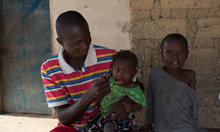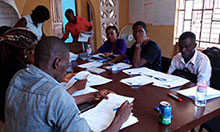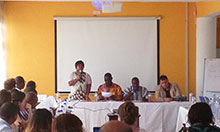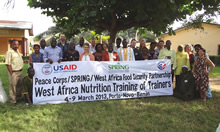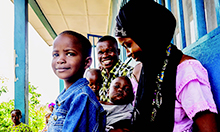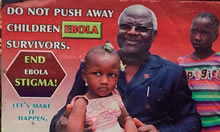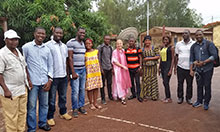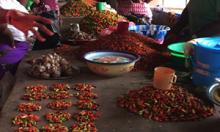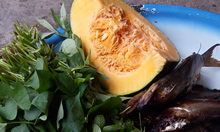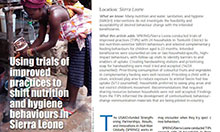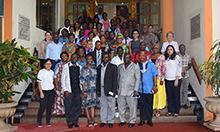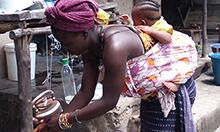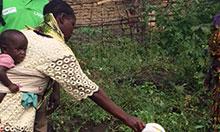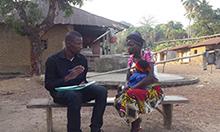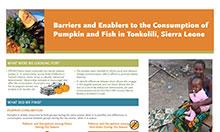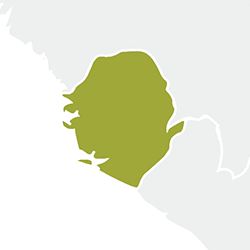 In Sierra Leone, SPRING received support from USAID’s Bureau for Food Security (BFS) and Global Health Bureau to improve nutrition and health. At the district level we aimed to learn how to improve feeding practices, year-round access to nutrient-rich foods, and sanitation and hygiene to reduce the risk of infection. We also investigated ways to encourage uptake of key water, sanitation, and hygiene (WASH) practices and nutrition-related behaviors, such as exclusive breastfeeding for the first six months of a child’s life. Within the food system, SPRING looked into how to get vendors to sell appropriate portions of nutritious foods at an affordable price, to safely process and store animal-sourced foods, and to minimize spoilage and nutrient loss. Fish and pumpkin are the two foods that served as the subjects of study for this work, which will took place in several of Tonkolili District’s chiefdoms, overlapping where possible with communities that WorldFish had identified for USAID investment.
In Sierra Leone, SPRING received support from USAID’s Bureau for Food Security (BFS) and Global Health Bureau to improve nutrition and health. At the district level we aimed to learn how to improve feeding practices, year-round access to nutrient-rich foods, and sanitation and hygiene to reduce the risk of infection. We also investigated ways to encourage uptake of key water, sanitation, and hygiene (WASH) practices and nutrition-related behaviors, such as exclusive breastfeeding for the first six months of a child’s life. Within the food system, SPRING looked into how to get vendors to sell appropriate portions of nutritious foods at an affordable price, to safely process and store animal-sourced foods, and to minimize spoilage and nutrient loss. Fish and pumpkin are the two foods that served as the subjects of study for this work, which will took place in several of Tonkolili District’s chiefdoms, overlapping where possible with communities that WorldFish had identified for USAID investment.
In addition to our district level work, SPRING also supported the Ministry of Health to establish and maintain a multi-sectoral National Anemia Working Group under the Scaling Up Nutrition Platform. This multi-stakeholder group composed of government, UN Agencies, Civil Society, Private Sector, and Donor Networks works together to prioritize and integrate anemia in national policy and programs. A range of actors working across multiple sectors (e.g., health, agriculture, and WASH) are needed for an effective and sustained response to anemia.
